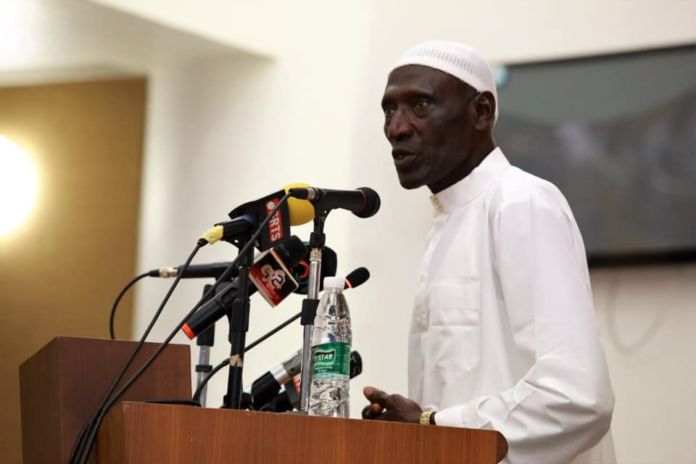By: Kebba AF Touray
The National Assembly of the Gambia has adopted the Revised Standing Orders 2019 as its new Standing Orders and also agreed for it to become operational on the date of the commencement of the fourth ordinary session of the Fifth Assembly of the 2019 Legislative year.
In the same vein, the Legislature also agreed to revoke the 2001 Edition of the standing orders of the National Assembly on the commencement of the fourth ordinary session of the fifth Assembly in the 2019 Legislative year
Sidia Jatta, Chairperson of the Standing Orders Committee, in tabling the report before the lawmakers, said the document underwent thorough scrutiny and consideration as well as inputs of the honourable members and the Committee took note that all the concerns raised have been incorporated as reflected in the final copy of the Revised Standing Orders.
He said, “Some of the new ones incorporated in the document are the Bureau of Committees, initially called the conference of Chairpersons, as well as the Human Rights and Constitutional Matters Committee, which are now identified as Standing Committees”.
He added that some of the requirements incorporated are the scrutiny checks before one enters the Chambers. He said henceforth one will be checked before entering the Chambers, as applied in other Parliaments, adding that it is risky to allow people Parliament without being check.
“It is important to note that there is a transitional provision, where some of the Orders, Actions, Elections, Nomination done under the current Standing Orders are saved. This means that some of the provisions of the revised standing orders will not come into force until the next legislature in 2021”, he said.
He clarified that this is geared to ensure sanity and order in the current legislature and reminded the members that standing orders of any parliament are subject to amendment even after coming into force.
He continued: “Standing Orders are dynamic living things and they are always requiring updating and amendments to meet the prevailing time and circumstances and are fundamentally rooted in the 1997 constitution and are not in any variance with the constitution”.
He also told members that standing orders are a guide for their practice and are not formulated against any person or any institution and that is something that the members should know, without which they cannot go for good practice in the Chambers.
Members who took part in the debate congratulated the Standing Orders Committee for a good job and urged that the new Standing Order comes into force as agreed, as it goes to meeting international Legislative Standards.





















